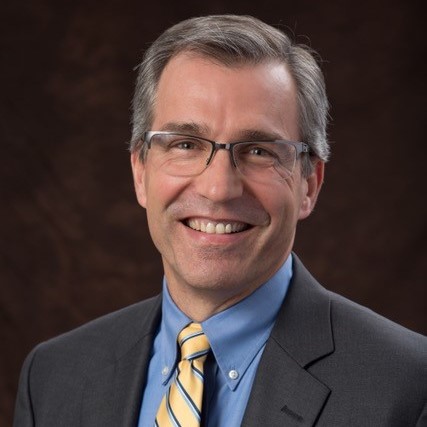2022: How do we continue building on the relational foundations that led to our successes?

Indie Arie sang about him in “One.” Bob Dylan sang about him in “They Killed Him.” Common and John Legend sang about him in “Glory.” U2 sang about him in “Pride.” And Stevie Wonder sang “Happy Birthday” to him.
Martin Luther King, Jr. died much too soon. The scaffolding he built working to dismantle systemic racism and white supremacy did not carry him to the next level in his war on poverty. A bullet in Memphis saw to that.
That work is still before us. In the next few weeks, the ACPE Foundation Board will explore what has become known as a “JEDI” strategy for its work. JEDI stands for Justice, Equity, Diversity, and Inclusion. For decades through the work of REM as well as through the individual efforts of countless members, ACPE has been aware of our role in maintaining old systems of oppression. In 2021, we made a significant step through the work of the Board of Directors, the Anti-Bias Task Force, and the larger membership in exploring how our explicit and implicit forms of bias shape our standards, our structures, and our practices. We have a long way to go, but we are committed to doing the work.
The overall endowment has grown to over $8 million under the prudent stewardship of the Foundation Board and administrative leadership of Jasmine Okafor. Based on our financial and spending policies, we will establish grant programs awarding between $150,000-200,000 annually, a significant growth from the $10,000-20,000 we have awarded through the Innovation Grants Program. These awards will be in addition to the annual MAP Fund for psychotherapy and the Glaz-Plummer Fund, which supports supervisory education theory.
Many members have shared ideas about how they hope we allocate these resources, including (in no particular order): (a) a new scholarship program to help centers without resources to launch CEC position(s), especially for CECs from underrepresented populations (i.e., race, gender/gender identity, spirituality, etc.); (b) ongoing support for the Boisen scholars to fully participate in annual conferences; (c) support for international students seeking to complete ACPE units in the U.S.; (d) funds to support underrepresented psychotherapists to engage in ACPE psychotherapy activities; (e) summer scholarships for underrepresented students to make summer CPE units more accessible to more students, and (f) funds to annually support research projects, usually in partnership with outside organizations. I have no doubt more ideas will come to the table as well.
All in all, ACPE has a healthy, thriving business model. We are investing in our first core value, i.e., diversity, equity, and inclusion. We have growing international partnerships as well as domestic opportunities. We continue to have roughly 450 locations where CPE is accredited and functioning well. We have over 100 people in the educator certification process, and we have several SIP programs planned for psychotherapists this year. While some may have difficulty seeing it, ACPE is a strong, vibrant association with a bright future.
We are not without our challenges. The median age of educators is just above 60 years old, meaning we anticipate many retirements in the coming years. We cannot simply assume that new students will show up; we must be more intentional at recruiting and strategizing with our institutions to host CECs. Psychotherapists are likely to encounter the highest demand for their services than they have ever known due to the growing mental health crisis in the U.S. This crisis may prove a revitalizing moment for a field that has struggled in recent years, perhaps leading seminaries and other educational institutions to rededicate resources to the teaching and professional development of counselors. Hospitals face increasing uncertainty, which only increases the anxiety of those who serve them. With inflation pressures and the unpredictability of the coronavirus, we need each other like never before.
Perhaps most importantly, our members are feeling more isolated than ever before. The needs for collegial support, consultation, and encouragement are at an all-time high. The lockdowns and work demands of the pandemic, with only Zoom screens as a social remedy, have left all of us hungry for a time to be together. We want to be realistic: we don’t know what future gatherings will look like, even as we see them as essential to our way of being. What can we do for each other – even through a screen – to continue building on the relational foundations that led to our successes listed above?
These are questions for every member. In the coming months, the Board of Directors will review proposals from researchers to assist us with a self-study. We expect the researchers will invite your ideas and suggestions. If you have particular questions or concerns and would like an experienced colleague to assist you, please call me. I will work to connect you with members who can serve as a resource, perhaps even to engage in consulting over specific challenges.
In the meantime, we hope that everyone who is physically able commits to being vaccinated and boosted, continues to practice safe distancing and mask-wearing, pauses each day to simply breathe, and takes a few minutes of each week to reach out to a colleague simply to say, “hello and I miss you.”
Trace Haythorn is the Executive Director of ACPE and can be reached at Trace.Haythorn@acpe.edu
